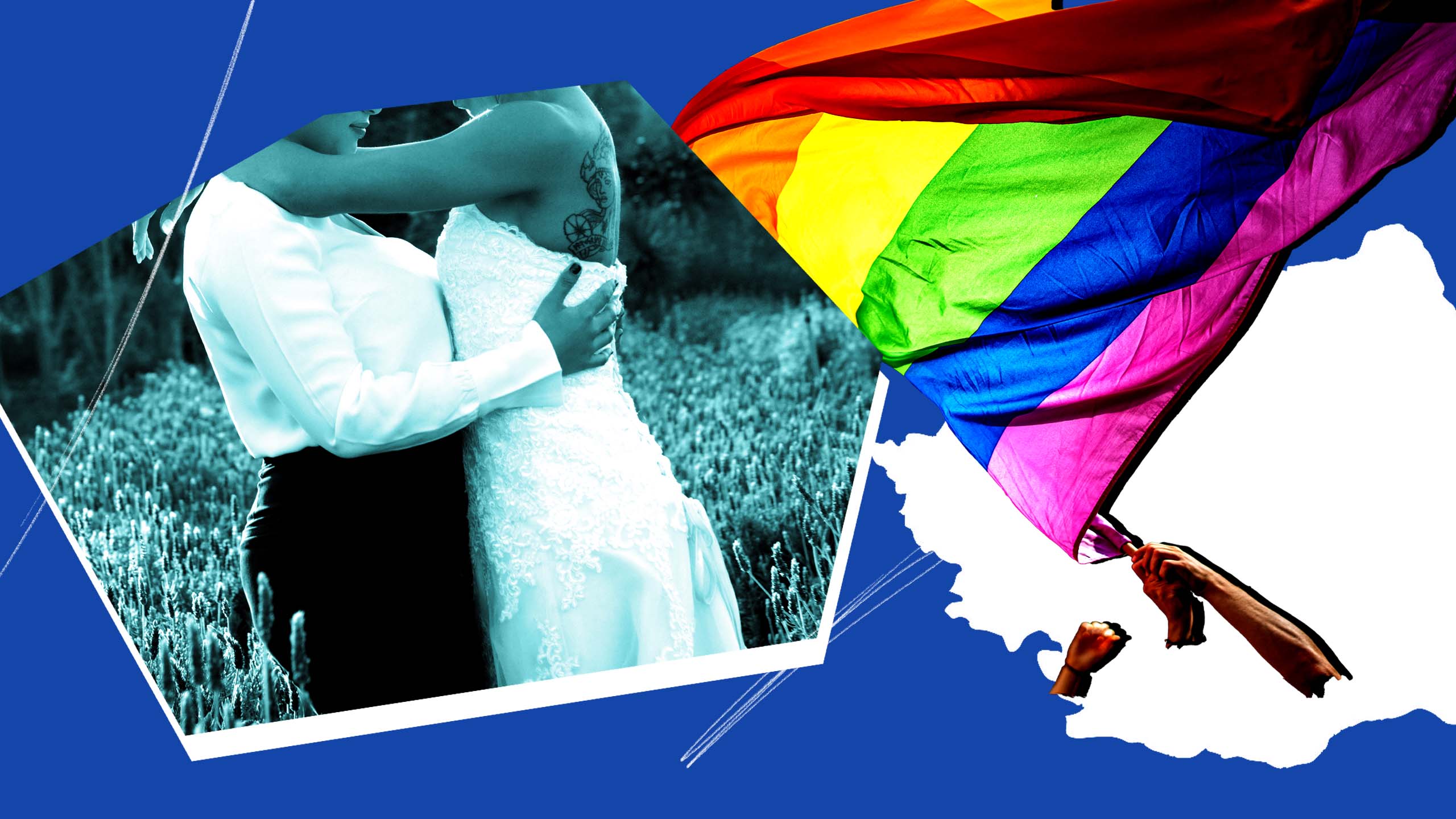A lesbian couple reportedly married in Romania even though the country outlaws same-sex marriage.
The women were able to sidestep their country’s definition of marriage through a legal loophole, as their close friend, Oana Maria Zaharia, told VICE magazine. Evie, who was referred to by a pseudonym in the story, is trans and has not yet changed the gender listed on her official documents, although Zaharia said she plans to do so.
Evie and her partner, Georgiana, married in July at Bucharest Town Hall, although the service experienced some complications. A public servant reportedly said that she wouldn’t officiate the wedding unless Evie was dressed in male attire. The ceremony was able to move forward due to Romanian laws forbidding officiants from refusing to perform a heterosexual wedding over the couple’s presentation.
After some back and forth, the official relented, but asked that pictures not be taken of the ceremony. She allegedly went on to emphasize that “marriage is the union between a man and a woman” while officiating the union.
Same-sex marriage has been outlawed in Romania since 2009, when the Eastern European country adopted a new Civil Code calling marriage “the freely consented union between one man and one woman.” Romania’s laws explicitly state that “marriage shall be prohibited between persons of the same sex” and that the country does not recognize gay marriages performed in other countries.
Following a failed referendum to further codify its marriage equality ban in 2018, the Constitutional Court of Romania ruled later the same year that the term “spouses” can only refer to heterosexual maried couples. (According to the court, queer couples otherwise have equal rights in areas like privacy and familial life.)
In addition to its restrictive marriage laws, Romania is also considering a Russia-style bill to prohibit materials that supposedly “promote” LGBTQ+ identities in schools. Advocacy groups worry the passage of such a law could reinstate censorship in the former Soviet country, which strictly suppressed speech and foreign influences for decades under its previous Communist regime.
“If censorship becomes acceptable in Romania, we will all suffer,” Teodora Ion-Rotaru, executive director of the LGBTQ+ advocacy group Accept, told the news outlet Radio Free Europe/Radio Liberty. “If children’s right to information and education can be censored in this brutal way, all youngsters will suffer. This kind of censorship affects our community, of course, but also it affects journalists, people in the advertising industry, medics, mental health experts, LGBTQ+ people are everywhere.”
Russian authorities have recently floated intensifying the country’s 2013 “propaganda” ban by doubling fines for spreading information on “non-traditional sexual relationships” to minors as similar proposals spread throughout Europe. Last year, Hungary enacted a law restricting LGBTQ+ representation across media, including in advertisements, books and television shows. In January, Poland’s lower house of parliament passed a bill allowing schools to limit LGBTQ+ education.
In spite of the current political climate, Evie and Georgiana’s wedding ended happily. According to VICE, the official who initially turned them away congratulated the couple and apologized after the ceremony, saying she’d never witnessed a union like theirs.
“Times change, lady,” Zaharia recalled a member of their wedding party responding. “You’ll see a lot more of this in the future!”


 Why you can trust Xtra
Why you can trust Xtra


